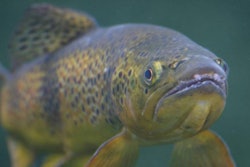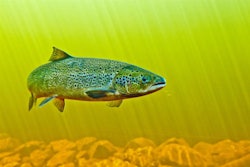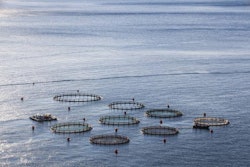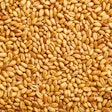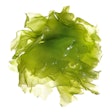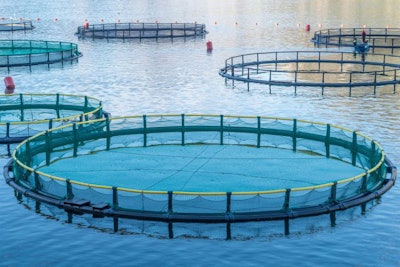
Among the 7 European projects to gain support is one exploring the potential of wastewater from the starch industry to produce a high-quality feed ingredient for farmed salmon.
Described as a “groundbreaking circular economy feed ingredient for farmed salmon” is one of the projects that has won a competition to improve the sustainability of aquaculture in the European Union. Launched in December 2020, the competition is run by the food section of the European Institute of Innovation & Technology (EIT Food).
The aim of this winning project is the development of a salmon feed derived from wastewater recycled from the starch industry. At its core, the project will explore using this waste to grow a sustainable fungal protein. This material will be tested as a replacement for fishmeal and soybean meal in diets for farmed salmon. As well as supplying protein for fish growth, the project aims to support the natural defense mechanisms of the salmon. And in addition to supporting all the fish’s biological processes, it is hoped that the novel feed ingredient will also help prevent diseases.
Contributing to this winning project are Cewatech (Sweden), Technical University of Denmark and Matis (Iceland).
Welcoming the announcement from EIT Food was Kurt Bjørkvik, chief technology officer of Cewatech.
“We are delighted that EIT Food will assist and support us in bringing our patented product, which can replace soy and fishmeal used in fish feed, to its industrialization phase,” he said. “We believe our fish feed will be beneficial for generations of fish farmers to come and produce high-quality fish for consumers worldwide.”
Turning paper wastewater into a valuable feed ingredient
Based in Gothenburg, Sweden, Cewatech AB describes itself as a technology and licensing company with a strategic goal to find partners for industrial use of environmentally friendly and sustainable processes based on micro-fungi belonging to the zygomyceter group. Using its patented process with specific micro-sponges, waste can be turned into high-quality products for fish feeds or a range of other applications. The process also contributes to environmental improvement and increased profitability for paper mills.
According to the firm’s website, feeding fish on waste materials not only produces quality fish. It can also improve the environment, reduce offshore fishing, and increase the profitability of paper milling.
Mushroom biomass produced using the wastewater contains high levels of protein, amino acids and vitamins. This makes the material a potential substitute for fishmeal, which is the main source of protein in feeds for commercial fish farming. Key to realizing this potential is that the biomass has a similar composition to the small sea creatures that are the natural food of the fish.
European aquaculture and the Green Deal
According to EIT Food, it launched the sustainable aquaculture competition at the end of last year to strengthen the innovation portfolio of its 2021-23 Business Plan. A secondary aim was to extend its community of partners in aquaculture, seeing this sector as the fastest-growing food sector.
The competition attracted 32 entries involving 85 partner organizations, resulting in 18 new partners for EIT Food.
Just last month, the European Commission adopted new guidelines for a more sustainable and competitive aquaculture sector in the European Union by 2030.
This is a key element of the European Green Deal, according to Mercedes Groba, EIT Food’s innovation program manager.
“The European Farm to Fork strategy aims to provide healthy and sustainable food systems. This is one of the key objectives of the European Green Deal. I truly believe that aquaculture is a critical part of the solution. Our promising innovation projects present a collaborative approach to meet the objectives of the European Green Deal, and to transform the aquaculture industry into a sustainable form of food production.”
Other winners of the EIT Food competition will explore sustainable seafood processing; creating a sustainable Atlantic bluefin tuna industry; a new eco-friendly system for fish health management; development of a global AI platform for Europe’s Skills Passport in aquaculture; a new production model for the production of shellfish juveniles; and the use of new technology both to minimize environmental impact and improve the welfare of farmed salmon.
When the framework was first unveiled in December 2019, the EU Green Deal received mixed reactions from farmers and the wider agricultural sector.


